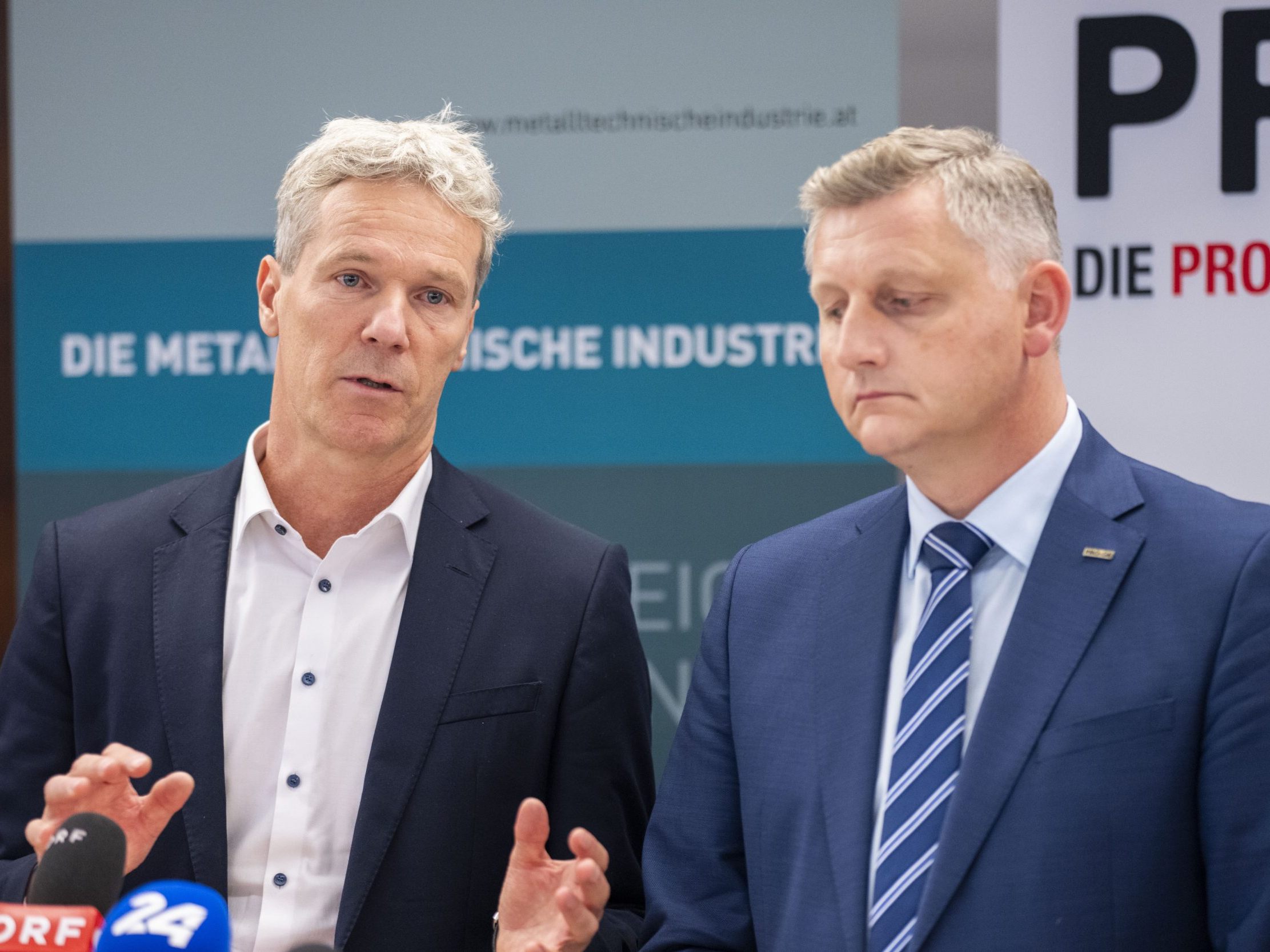Metal Industry Collective Agreement Engages Negotiators Again

On Monday, the autumn wage round begins in Vienna with the collective agreement negotiations for the metal industry and mining. The talks are taking place under particularly difficult conditions this time: While the unions want to secure the purchasing power of employees in light of high inflation and categorically exclude a zero-wage round, the industry is struggling with high energy costs, industrial weakness in Germany, and US tariff policies.
Knill for Agreement Below Inflation
Traditionally, the talks start with the formal presentation of demands by the unions at the Chamber of Commerce, followed by the first round of talks with the Metal Technology Industry Association (FMTI). Around 190,000 employees are affected. On the employee side, PRO-GE federal chairman Reinhold Binder and - for the salaried employees - GPA federal manager Mario Ferrari lead the negotiations. The chief negotiator for the employers is FMTI chairman Christian Knill, who is calling for an agreement below inflation.
Also on Monday, collective agreement negotiations begin for around 55,000 employees in 92 railway companies in Austria. The vida union has already stated that it will not accept real wage losses either.
The conditions for the metalworkers are difficult: After a dip in the spring, inflation has recently picked up again - inflation was at 4.1 percent in August 2025. The basis for negotiations is usually the "rolling inflation" of the last twelve months, which the autumn agreements are based on - it is 2.8 percent.
Looking back: For 2024, a two-year agreement already agreed upon in 2023 applied. It brought a permanent increase of 4.8 percent from November 1, 2024 (rolling inflation of 3.8 percent plus 1 percentage point) as well as increased apprentice incomes. The minimum collective agreement wages rose by 3.8 percent. The agreement was supported by all six employer associations.
Unions Against Zero Wage Rounds
In advance, employers are urging restraint: FMTI Chairman Knill has been calling for lower agreements over several years since the beginning of September to strengthen competitiveness. The unions reject zero wage rounds and refer to the preservation of purchasing power.
Recently, economic researchers also advocated moderation: WIFO Director Gabriel Felbermayr suggested in May that wage agreements - for example, in the public sector - should not exceed inflation. Several economists generally spoke out in favor of wage restraint in the autumn wage round in August. The unions reject these calls.
Collective Agreement Minimum Wage in Metal Industry
The currently valid collective agreement minimum wage in the metal industry has been 2,518.43 euros gross (14 times a year) since November 1, 2024. In addition, allowances - such as for shift and night work - are common in the industry and have also been recently increased. The metalworkers' collective agreement is considered the leading agreement of the autumn wage round; in many companies, the actual IST wages are above the collective agreement level.
(APA/Red)
This article has been automatically translated, read the original article here.





